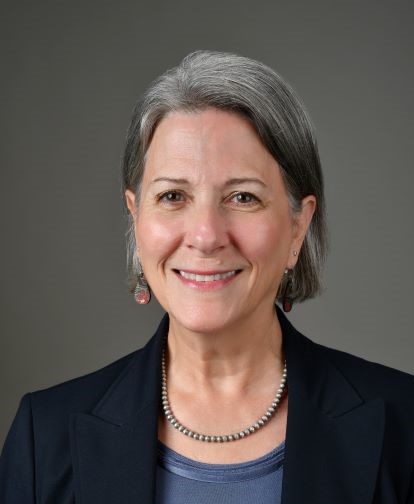QI project studies unintentional weight loss in assisted living facilities

Data from a quality improvement project, led by Maureen Stabile Beck, DNP, APRN, GNP-BC, assistant professor in the Joan and Stanford Alexander Division of Geriatric and Palliative Medicine, has been published in the Journal of Gerontological Nursing.
Throughout the COVID-19 pandemic, residents in assisted living facilities were at greater risk of declining health due to advanced age, frailty, chronic conditions, and transmission prevention methods. Patients who are quarantined in their rooms can also experience isolation and potential weight changes.
“Unintentional weight loss can be a warning sign of underlying or future and often preventable health problems in older adults,” Beck said. “For example, depression, memory loss, or even a new diagnosis of cancer can be linked to what can present as weight loss.”
After receiving reports of weight loss in older patients quarantined in assisted living facilities in the Houston area, Beck and her team consisting of Shuyan Bi, MSN, APRN, AGNP-BC, nurse practitioner; Faith D. Atai, MD, associate professor in the Department of Internal Medicine; and Nahid J. Rianon, MBBS/MD, DrPH, AGSF, professor and Memorial Hermann Chair in the Department of Family and Community Medicine; designed a quality improvement project to study the effects the quarantine had on patient body weight and improve documentation.
“Social isolation and loneliness are known contributors to depression and weight loss,” Rianon said. “We simply did not know what was going on and the assisted living facility residents needed to be in strict isolation in their rooms due to COVID-19 protocol. We embarked on this journey to find out reasons why, and if there is a way to prevent this from happening in the future in a pandemic, epidemic, or natural disaster situation.”
To collect data for the QI project, the team reviewed medical charts of patients for data collection and requested months of weights from the facilities. Due to the pandemic, the team was not allowed to visit the facilities, so they relied on staff to fax the weight charts to them. Additionally, the team discovered that each facility uses different methods for recording weight and some facilities had no red flags to report weight changes, while others did not weigh their patients at all.
Over a six-month period of facility and room isolation, the convenience sample of data demonstrated significant unintentional weight loss of at least 5% in 40% of the sample population. In nearly half of those patients, a reduction of 10% of weight loss from their pre-quarantine weight occurred.
“This degree of weight loss triggers an alarm for geriatricians, both physicians and nurse practitioners, who are the primary providers for older adults and should be a trigger for any provider of residents in assisted living facilities,” Beck said. “Unintentional weight loss of 5% is a question geriatricians ask when we worry about underlying frailty. Onset of frailty requires a closer look into the patient’s health care not only to prevent but also to intervene early and plan ahead for keeping the patient functional for long-term as they age in place in assisted living facilities.”
Beck said that the team hopes the quality improvement project will help assisted living facilities begin taking steps to record weight and identify easier and better ways to monitor weight loss with frequent follow ups. The data recommends weight monitoring monthly for low-risk patients and weekly for high-risk patients in order to identify and intervene early.
“As geriatricians, we understand the difficulty checking and monitoring weight when patients are in strict isolation,” Beck said. “However, a protocol in place may remind us about the importance and make this happen when accessing patients while providing meals or other necessary needs.”